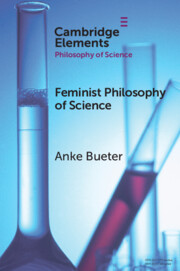Element contents
Feminist Philosophy of Science
Published online by Cambridge University Press: 28 May 2024
Summary
Keywords
- Type
- Element
- Information
- Online ISBN: 9781108956055Publisher: Cambridge University PressPrint publication: 20 June 2024
References
- 5
- Cited by

